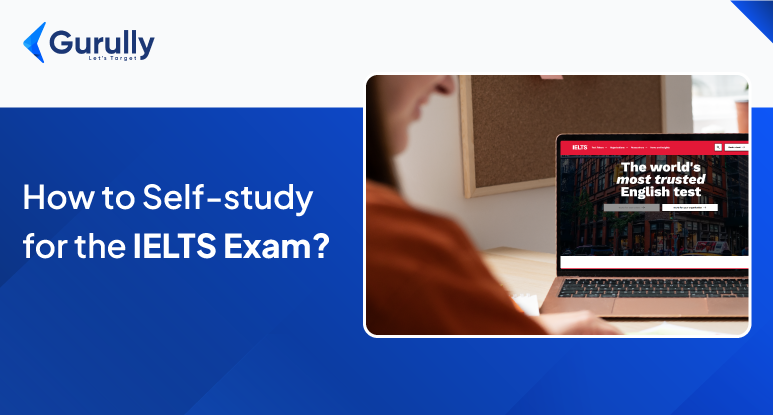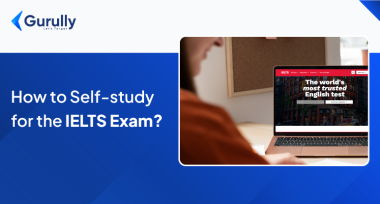When planning for higher studies and in colleges abroad, students are expected to appear for an exam vouching for their English expertise. This means a candidate must know the British English language’s tonality and accent. This standard exam is conducted across the globe and is accepted by most schools, universities, etc. When moving from a country that doesn’t have a first language of English to an English-native nation, employees must present their IELTS score to be eligible to work in a foreign organization. If you are among these, you must prepare for the exam and appear for it as soon as possible. You must be wondering how to start studying for the exam. Don’t worry; we will help you out. This article will guide you through IELTS Exam Strategies for self-study . Without wasting time, let’s get started.
IELTS Exam Strategies To Start Preparation
When you think about opting for a self-paced study, these are the few things you must consider doing.
1. Understand the Exam Format
Before diving into your self-study journey, familiarize yourself with the exam format. Understand each section’s time constraints, question types, and scoring criteria. Your study plan will benefit from this knowledge as you may concentrate on the areas that require improvement.
2. Study the syllabus
Before you begin learning and preparing, ensure you know the exam syllabus, the exam format, what types of questions can be expected, and the marking structure.
Test Format: We begin by understanding the format of the test.
- Four sections include listening, speaking, writing, and reading.
- The three sections listening, writing, and reading, must be taken on the same day. However, the speaking test can be given within seven days. This could either be before the other exams or after them.
Reading Section:
With a time duration of 60 minutes, the test comprises 40 questions. The question set has a flavor with multiple choice questions, matching headings, identifying information, diagram labelling, short answers, etc. Each question is worth one mark.
Writing Section:
Again, this is 60 minutes and has two different tasks. The first task is 150 words, whereas the second is 250 words. For academic purposes, task one will ask you to provide detailed information about a figure, whereas the second task will require a report on a given argument.
The general test is a bit different. You need to write a letter explaining a scene presented for the first task and write an essay for the second to prove an argument.
Listening Section:
With 40 minutes in hand, you are expected to answer 40 questions. These are divided into four sections that grow progressively. Each question can be heard only once.
Speaking Section:
The speaking section lasts for 11-14 minutes. It is a face-to-face interaction between the candidate and the examiner. The candidate is assessed based on the conversation the two have and thoughts presented by the candidate on a given topic.
3. Gather Resources
Once you know the syllabus and the paper format, the next step is to start gathering resources. We suggest you stick to a single source or maybe two. Having too much, you might end up making a mess. Ample study materials, practice papers, and guides are available online. Skim through the materials to find the best one. You can also purchase study materials and practice sets from esteemed organizations that help students with the overall preparation process.
4. Practice without Underestimating its value
Learning is one thing, and implementing is another. If you spend days and months just learning about the concepts, the words, and other information, without practicing them, the result wouldn’t be good. It is an exclusive tip to prepare for IELTS and, in fact, any exam. You can practice with a free IELTS mock test online, which helps you feel the real environment of the exam. You will know your capability, where you stand, and how much effort you will require to achieve your desired score.
Practice as many times as possible. Solve papers, revise the areas where you go wrong, and practice again. Repeat the step, and you will find yourself in a better position than the first day. Practicing also gives you a real-time experience of how to deal with when you are time-bound.
5. Come up with a realistic Study Schedule
Procrastination is one big challenge that you need to fight with. Self-study often ends up delaying tasks and giving excuses. We suggest you prepare your study plan at least one week in advance. Add details to your calendar and follow them as expected. Ensure you include parts of each section on a given day, as it will keep your interest high, helping you study better.
6. Practice On Gurully’s Mock Test
Practice on Gurully’s Mock Test to boost your IELTS exam preparation. This Platform offers you realistic mock tests. They are designed to simulate the actual IELTS exam environment. This helps you get familiar with the test format and time constraints.
FAQs (Frequently Asked Questions)
Q: Can I self-study for the CD IELTS exam without external help?
A: Yes, self-study is possible with the right IELTS Exam Strategies and dedication. However, seeking feedback from tutors or language professionals can significantly enhance your preparation.
Q: How long does it take to prepare for the CD IELTS exam through self-study?
A: The IELTS Exam Strategies varies depending on your language skills and the time you can dedicate to studying. It is recommended to start preparing at least 2-3 months in advance.
Q: Are online resources sufficient for self-study?
A: Online resources provide a wealth of information and practice materials. However, it’s advisable to supplement them with authentic test materials and expert guidance.
Q: Should I focus more on practice tests or improving my language skills during self-study?
A: Both aspects are crucial. While practice tests familiarize you with the exam format, improving your language skills will enhance your overall performance. Strike a balance between the two.
Q: Is taking a preparatory course for the CD IELTS exam necessary?
A: Taking a preparatory course is not mandatory but can be beneficial, especially if you prefer structured guidance and personalized feedback.
Wondering how you’ll score in IELTS? Use our IELTS Band Score Calculator to find out instantly!
Conclusion
Having said the above, one thing to note is that self-study requires dedication and perseverance. You might be a bright student, but if you fail to follow the routine and be disciplined, even the most straightforward question would seem difficult. Keep in mind the above points and start studying.
Also Read:
- Set Your Target Score – Know Scoring Pattern Of DUOLINGO Vs IELTS
- PTE vs CELPIP vs IELTS : Which Is Best English Test For Canada PR
🎯 Easily Estimate Your Scores with These Free Calculators:
📊 PTE Core Score Calculator
📊 CELPIP Score Calculator
📊 IELTS Score Calculator
📊 Duolingo Score Calculator







